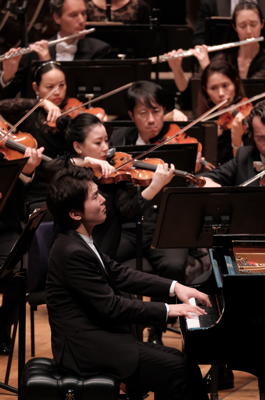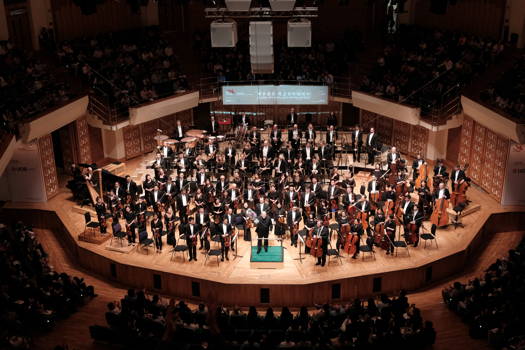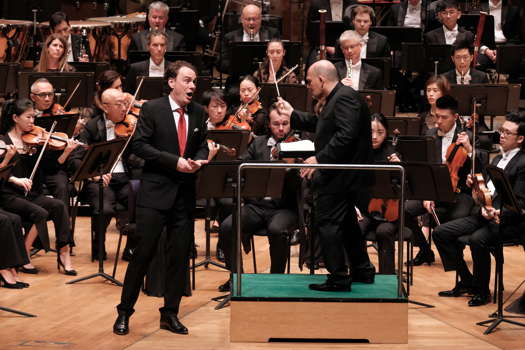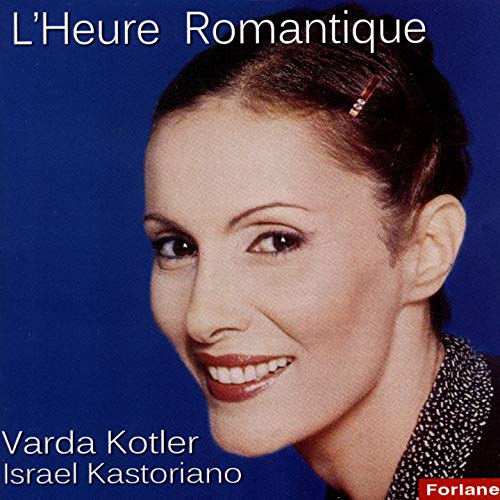 UPDATES: There's a new feature every day at Classical Music Daily. Read about the various ways we can keep in touch with you about what's happening here.
UPDATES: There's a new feature every day at Classical Music Daily. Read about the various ways we can keep in touch with you about what's happening here.
Germanic Gravitas?
ADAM J SACKS marks the opening of the
Hong Kong Philharmonic Orchestra's new season
Classical music certainly shows no signs of flagging in Hong Kong. The young orchestra, and first Asian orchestra to be nominated as Gramophone's Orchestra of the Year opened their new season on the weekend of 6 September 2019 with a vigorous performance. Featuring the ebullient Seong Jin Cho on piano, his growing star power is itself a sign that the future of the European musical past is bright along the Pacific Rim. Literally popping off his chair during the Rachmaninov Piano Concerto No 2 his fiery intensity had his feet also swinging along. He proved just as able to provide the faint echo of shadows needed in the softer dynamics especially when making room for the solo flute in the second movement. Highlighting this work, which is the font of so much Tin Pan Alley chanson from Sinatra to Celine Dion, is a clever programming move to bring the audience up to speed on classics of both high art and pop culture.

Seong Jin Cho performing Rachmaninov's Piano Concerto No 2 with, behind, members of the Hong Kong Philharmonic Orchestra. Photo © 2019 Ka Lam
Conductor Jaap van Zweden, also serving as director for the New York Philharmonic, has made as his carrying card and trademark in the Special Administrative Region of the People's Republic, the music of Wagner. Having already provided last year the first concert rendering of The Ring in the city, he decided to open the new season with the Meistersinger overture. Aside from the problematics of such an open embrace of a work sometimes dubbed as the National Socialist 'national anthem' - even the concert notes made no mention of the pernicious stereotyping in the charcterization of the music critic, Beckmesser - Jaap does not seem to be able to summon the Germanic gravitas to conjure up the true rousing quality inherent in the work. In fact his finale was positively rushed.

Jaap van Zweden and the Hong Kong Philharmonic Orchestra. Photo © 2019 Ka Lam
Fitting for a city known as an engine of global commerce, the follow-up concert featured the misattributed masterpiece of Brahms 'Variations on a Theme by Haydn'. Using the name of the old master Papa, this bit of clever musical salesmanship has survived over the ages, even after scholars uncovered the error in authorship. (That it probably emerged out of the workshop of assistants of Haydn much like art of the Renaissance masters, only further underlies the commercial point.) Rightly so however, it is a work of restrained neo-classical elegance, beautifully restrained, quietly building architecture of musical memory.
With attendance unfortunately severely marred by the coincidence of the Mid-Autumn moon festival, those in attendance received the treat of serenade from accomplished German baritone Stephan Genz. His reading of Mahler's Lieder eine fahrenden Gesellen was a study in contrast with the Brahms, the chaotic jumble of natural fields to the pristine structures of civilization.

Stephan Genz, Jaap van Zweden and members of the Hong Kong Philharmonic Orchestra. Photo © 2019 Ka Lam
He adeptly handled the recourse to dialect and animal sounds in the song cycle. Though neither of the two opening concerts reflected the long-standing commitment to local composers, the Mahler suggests and resounds with an openness to the East and the inclusivity of folk traditions.
Copyright © 17 September 2019
Adam J Sacks,
Hong Kong, China





